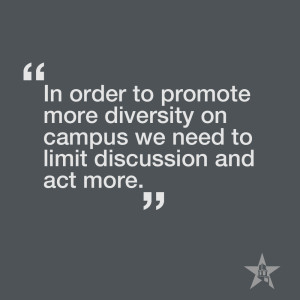In the present day and especially in Christian circles we often find it uncomfortable to talk about issues and topics involving race. As our culture becomes more politically correct we choose to revert to language such as “but I don’t see color.”
 Segregation and discrimination — whether against the African American population or against people of other ethnic and cultural backgrounds — appear to be systemic and deeply ingrained in our culture. As a result, we tend to label one racial group as the antagonist, insinuating that racial tension is somehow one-sided and narrowly defined.
Segregation and discrimination — whether against the African American population or against people of other ethnic and cultural backgrounds — appear to be systemic and deeply ingrained in our culture. As a result, we tend to label one racial group as the antagonist, insinuating that racial tension is somehow one-sided and narrowly defined.
Integration has been historically stagnant.The US is not alone in its pursuit of integration; humans tend to define themselves relative to other groups of people. For example, a patrician as compared to being a plebeian, or even a Christian as compared to being a Buddhist. So how do we overcome those definitions?
We generally believe that racism is partial or biased and that it favors one particular group, but we all put each other into unhealthy categories. As a white American, I am automatically grouped into the “white” category. I find myself lumped into a massive group of white, privileged people; I lose my individual identity. Living adjacent to a city populated by a large number of Latin American and Hispanic families, I often hear comments or phrases that explicitly define me by my skin color.
 Even here, in Houghton, New York, I see how my skin separates me from others. In church one Sunday, the pastor encouraged us to “share a word of greeting with one another” before the sermon started. I watched as a girl came running across the aisle and past me to greet my housemates, saying, “Good morning my fellow black girls!” I know that wasn’t meant to hurt me, but it did.
Even here, in Houghton, New York, I see how my skin separates me from others. In church one Sunday, the pastor encouraged us to “share a word of greeting with one another” before the sermon started. I watched as a girl came running across the aisle and past me to greet my housemates, saying, “Good morning my fellow black girls!” I know that wasn’t meant to hurt me, but it did.
Racism is not just one group against another; there is a degree of mutual resentment between various ethnic and racial groups. Take, for example, the discussion about the Ferguson incident that Dean Jordan hosted last December. A few comments that pertained specifically to “white Americans” caught my attention. One individual expressing her anguish commented, “You will never understand what it feels like.” This comment alludes to the perception that issues of racism, discrimination, and prejudice are a one-sided battle, one group against the other. To some extent that is true, but sometimes this perception does more harm than good. It lies in assumptions made about the other group.
